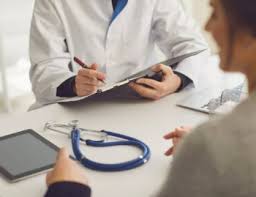
Our General Practitioner (GP) at Analgesia Clinic is Dr. Soraya
In the medical profession, a general practitioner (GP) or family physician is a physician who treats acute and chronic illnesses and provides preventive care and health education to patients of all ages.
 GPs’ duties are not confined to specific fields of medicine, and they have particular skills in treating people with multiple health issues. They are trained to treat patients to levels of complexity that vary between countries.
GPs’ duties are not confined to specific fields of medicine, and they have particular skills in treating people with multiple health issues. They are trained to treat patients to levels of complexity that vary between countries.
A core element in general practice is continuity that bridges episodes of various illnesses. Greater continuity with a general practitioner has been shown to reduce the need for out-of-hours services and acute hospital admittance.
Continuous care by the same general practitioner has been found to reduce mortality.
The role of a GP can vary greatly between (or even within) countries. In urban areas of developed countries, their roles tend to be narrower and focused on the care of chronic health problems; the treatment of acute non-life-threatening diseases; the early detection and referral to specialized care of patients with serious diseases; and preventive care including health education and immunization.
Meanwhile, in rural areas of developed countries or in developing countries, a GP may be routinely involved in pre-hospital emergency care, the delivery of babies, community hospital care and performing low-complexity surgical procedures.
In some healthcare systems GPs work in primary care center’s where they play a central role in the healthcare team, while in other cases GPs work as sole practitioners.
The benefits of general practice.
Health systems with a greater focus on generalist care are more equitable and have lower costs and better health outcomes than those with a specialist or hospital focus.
There are significant benefits to the long-term, patient-centered care provided by GPs.
- patient consultations at home and within the surgeryMonitoring patients’ conditions and well being
- clinical examinations
- diagnosis and treatment of illnesses/ailments
- minor surgery
- carrying out tests to diagnose (eg urine sample testing)
- health education
